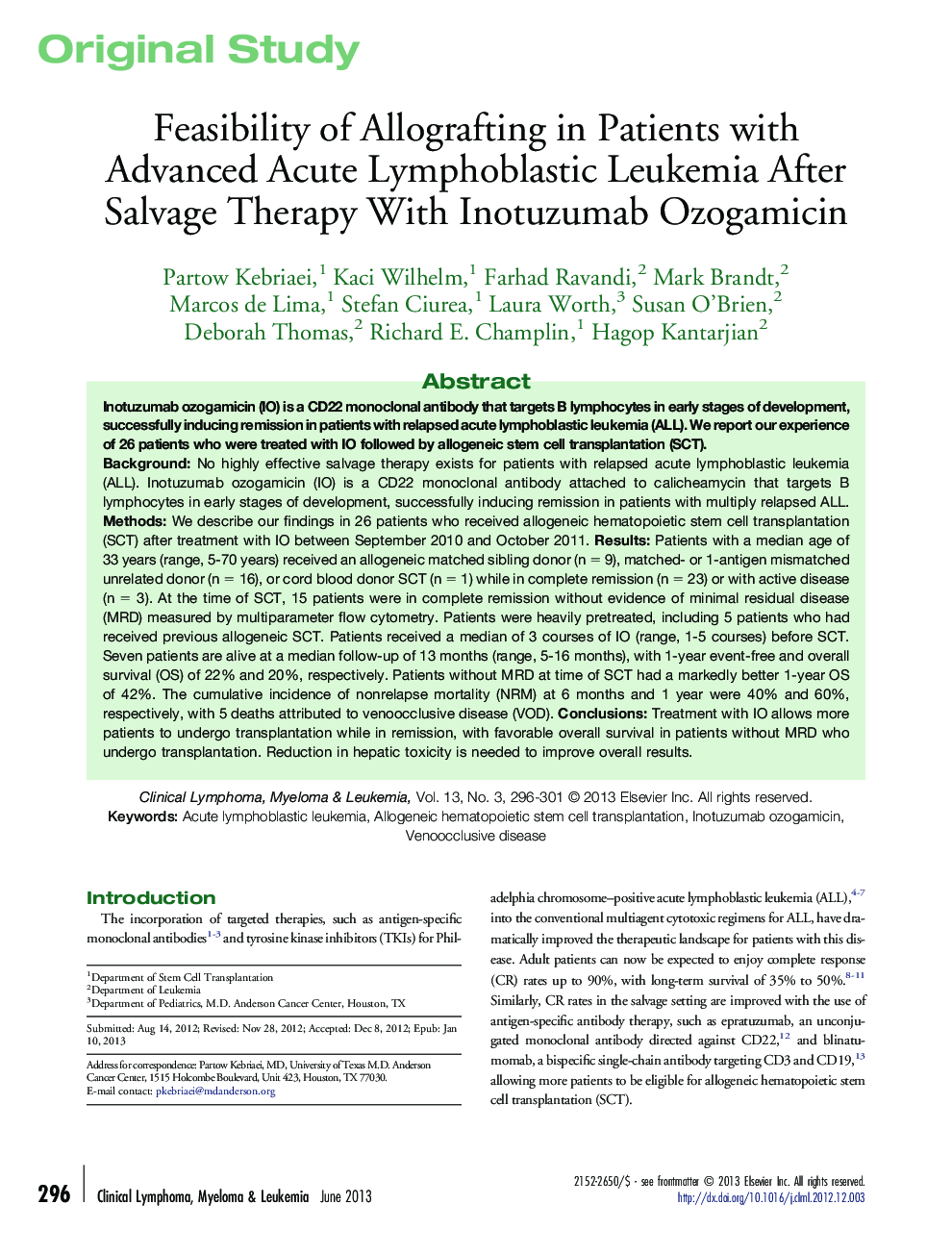| Article ID | Journal | Published Year | Pages | File Type |
|---|---|---|---|---|
| 2754789 | Clinical Lymphoma Myeloma and Leukemia | 2013 | 6 Pages |
BackgroundNo highly effective salvage therapy exists for patients with relapsed acute lymphoblastic leukemia (ALL). Inotuzumab ozogamicin (IO) is a CD22 monoclonal antibody attached to calicheamycin that targets B lymphocytes in early stages of development, successfully inducing remission in patients with multiply relapsed ALL.MethodsWe describe our findings in 26 patients who received allogeneic hematopoietic stem cell transplantation (SCT) after treatment with IO between September 2010 and October 2011.ResultsPatients with a median age of 33 years (range, 5-70 years) received an allogeneic matched sibling donor (n = 9), matched- or 1-antigen mismatched unrelated donor (n = 16), or cord blood donor SCT (n = 1) while in complete remission (n = 23) or with active disease (n = 3). At the time of SCT, 15 patients were in complete remission without evidence of minimal residual disease (MRD) measured by multiparameter flow cytometry. Patients were heavily pretreated, including 5 patients who had received previous allogeneic SCT. Patients received a median of 3 courses of IO (range, 1-5 courses) before SCT. Seven patients are alive at a median follow-up of 13 months (range, 5-16 months), with 1-year event-free and overall survival (OS) of 22% and 20%, respectively. Patients without MRD at time of SCT had a markedly better 1-year OS of 42%. The cumulative incidence of nonrelapse mortality (NRM) at 6 months and 1 year were 40% and 60%, respectively, with 5 deaths attributed to venoocclusive disease (VOD).ConclusionsTreatment with IO allows more patients to undergo transplantation while in remission, with favorable overall survival in patients without MRD who undergo transplantation. Reduction in hepatic toxicity is needed to improve overall results.
